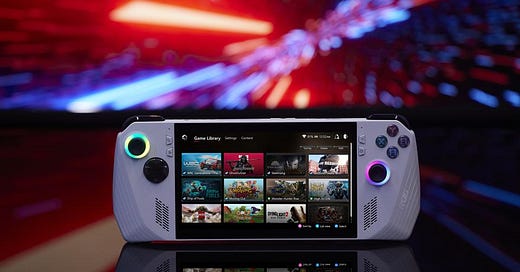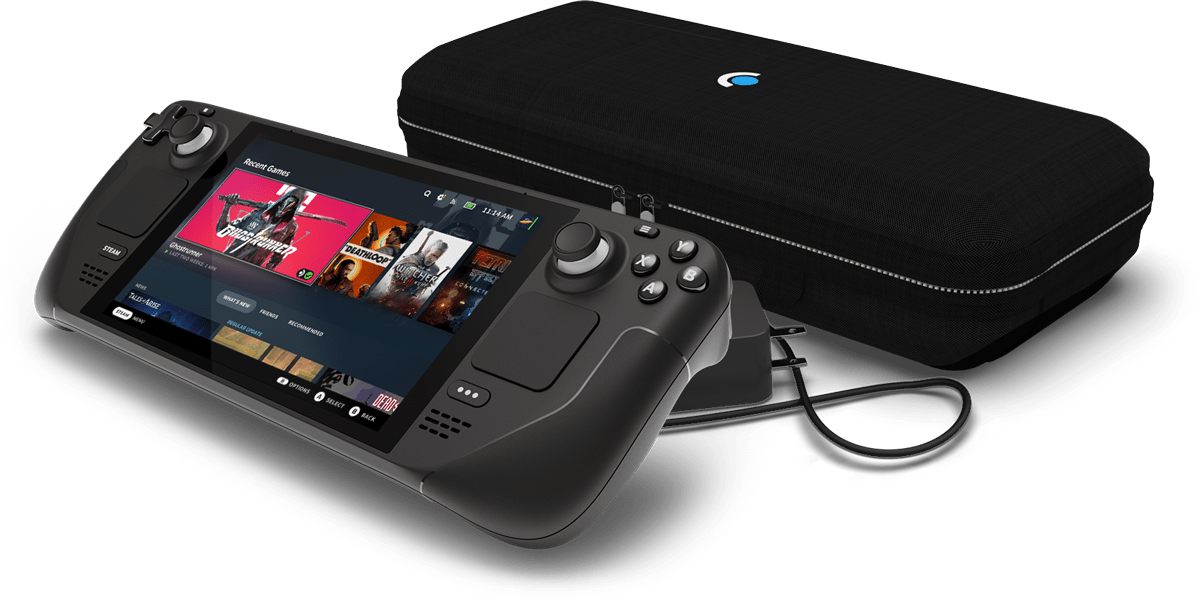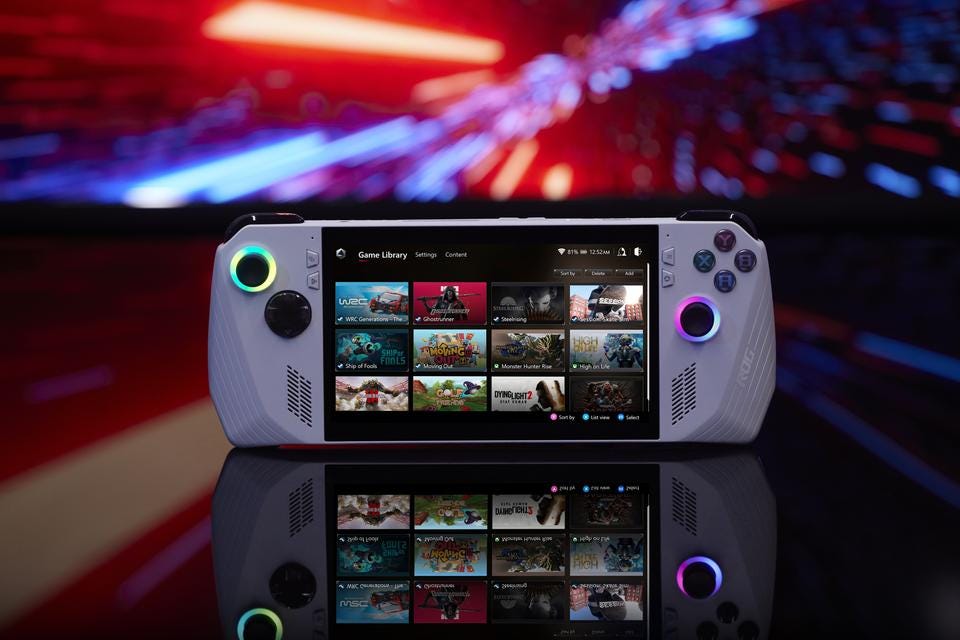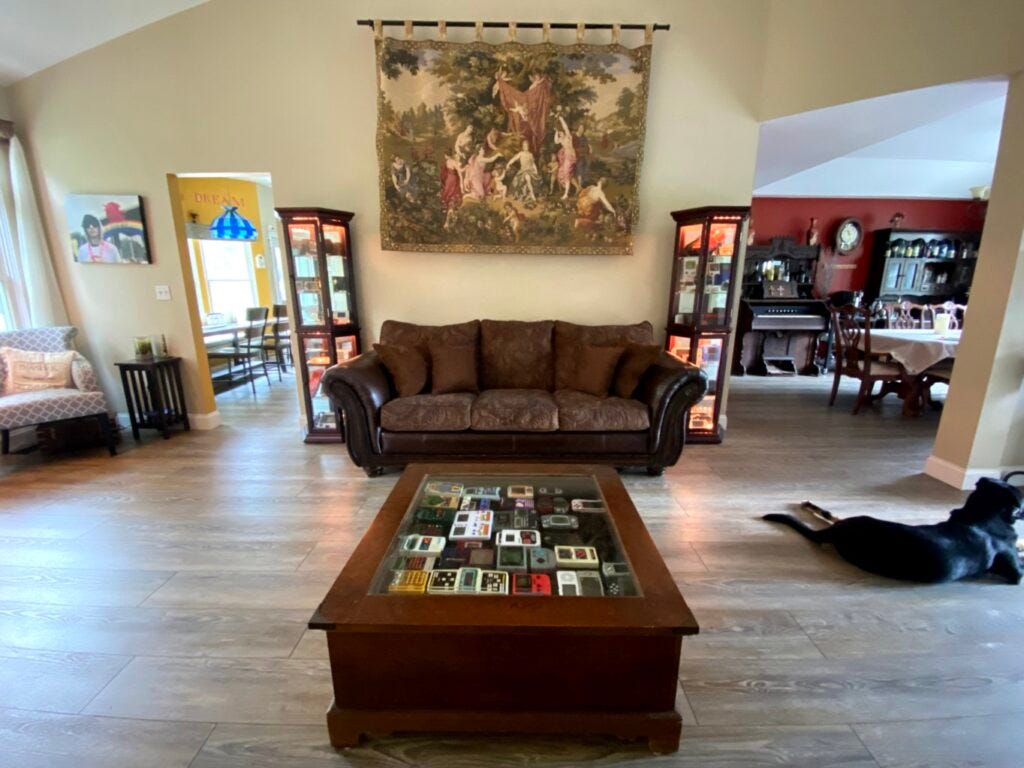Keep your eye on the handheld gaming PC.
With only a few years of commercial release, the unique form factor still has much to prove. Still, early signs point to a device that could become as industry-defining as the now multi-billion-dollar gaming laptop market.
"The last time we created a new category like this in gaming, in my opinion, was about 20 years ago when we created the first gaming laptop, and it took years before gaming laptops sold as many units as the Steam Deck has sold up to now."
That's Frank Azor, co-founder of Alienware, former head of Dell's gaming and XPS divisions, and now AMD's chief architect of gaming solutions and marketing.
He knows a thing or two about computer gaming on the go. About 20 years ago, Alienware launched its massive gaming "laptop" into a market that mostly didn't comprehend its value. But those that did, that niche of players who wanted a gaming laptop, embraced the concept.
So Azor pushes back when I say that the estimates for Steam Deck sales aren't very impressive.
He says comparing the device to something like the Nintendo Switch isn't fair. Nintendo, he points out, has been making handhelds for decades. But this is the third or maybe fourth generation of PC gaming handhelds. They've been around maybe six years or so.
With that in mind, he says a "remarkable" amount of Steam Decks have been sold.
And this is a device designed to work with a portion of the Steam library out of the box. It's not, he points out, a turnkey solution like a Nintendo Switch.
"Here we're taking content designed for a completely different form factor, and we're getting it to run on this form factor," Azor said. "And the truth is, it's not going to be as elegant of an experience for the end user as a kind of Nintendo Switch experience."
With all that in mind, what the Steam Deck achieved is remarkable. More importantly, it seems to have shaken the OEM computer market awake.
AMD's handheld gaming chips
Last month, AMD revealed its new Ryzen Z1 Series processors, a set of high-performance processors designed specifically for handheld PC gaming consoles. It's a significant investment from a company that already got a taste of the burgeoning market with some PC gaming handhelds from companies like OneXPlayer, GPD, and Ayaneo. But it was the Steam Deck's success— powered by an AMD Zen 2 chip — and the attention that device drew, which eventually led to the new chip.
"We've been seeing this category just continue to get hotter and hotter and hotter, and then we got some requests from some of the OEMs," Azor said. "I think they saw the success of the Steam Deck project, and they came to us and said, 'Hey, we want to get into this space, and what are your thoughts on it?'"
It turns out Azor had a lot of thoughts. He's been thinking about handheld PC gaming systems since his time at Alienware. He even worked on the Alienware Concept UFO, a device that looks quite a bit like a Nintendo Switch but houses the guts of a beefy gaming PC.
Azor said he had been working on that with a team at Alienware for eight years before it was shown off at CES in 2020.
"We were passionate about it over here," he said. "We had the technology. We had this opportunity, and it just kind of all came together and made sense for us to double down on this."
The first device to use the new processors will be the Asus ROG Ally, a slick-looking Windows 11 Gaming Handheld that features a 120 Hz FHD screen and 16GB LPDDR5 memory. The full details of the device will be announced on May 11.
Azor points out that the beefy machine is not going to be like owning a Nintendo Switch. Users are going to have to put in some effort to set it up to play the games they want. A very similar situation to the early gaming laptops.
"That's the most important thing people need to understand," he said. "We're in the early days."
So, for instance, if you want to install the Epic Games Store or Battlenet, it's going to take a bit more effort to set it up and install what you want simply because neither currently has an interface designed for navigating with a gamepad.
"So initially, it's going to appeal to the enthusiast who is willing to go through those steps because the reward is worthwhile," he said. "Because once you get the game loaded on there, it's awesome. It's really great.
"So initially, I think it's going to be enthusiasts that are early adopters, that are willing to go through that extra process and are informed and educated about how to do it. And then, over time, I'm hoping that as this category continues to get more attention, we'll start to see more adaptations of these digital distribution platforms like Epic and EA and Battlenet. And they'll start to adopt more of an optional interface like Steam has done now for years."
Steam's Big Screen mode, which was designed to work with gamepads, was actually developed in partnership with Alienware for the release of its Steam Machines in 2015.
A milestone
AMD views the release of the ASUS ROG Ally as a milestone, a marker along the path that the company believes will see a niche market grow into another massive facet of PC gaming.
"This is a whole new category," Azor said. "We're taking a Windows PC and making it truly mobile. This is a fully featured Windows PC gaming device that you can actually connect to a big screen monitor and keyboard and mouse using the port replicator or docking station or whatever, and now all your content is there. And the user interface is exactly what you're familiar with.
"This is completely new. It's completely different."
The fact that the ASUS ROG Ally is a fourth-gen device shows that this format is already ahead of where gaming laptops were when they first came out, Azor added.
"To me, this is an awesome milestone," he said. "But what I'm really excited about is where we're going to be in five years and 10 years in this space. I saw the evolution of gaming laptops occur. I know you need to have the vision for where we're going to be, not just focus on where we are right now because this is still kind of early."
Elsewhere
Ravenlok delivers a fitting conclusion to Cococucumber’s Voxel Trilogy









